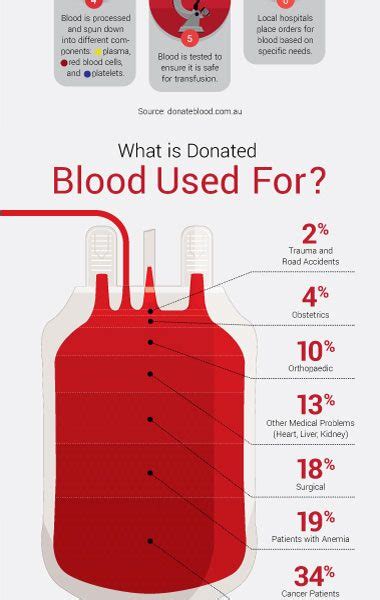Hypertension, commonly known as high blood pressure, affects millions of individuals worldwide. It is a major risk factor for cardiovascular diseases, stroke, heart attacks, and other health complications. Identifying the subtle signs and symptoms of high blood pressure is crucial for timely diagnosis and effective management. This article delves into the common symptoms of hypertension and provides practical remedies to lower blood pressure levels and improve overall health.

Symptoms of High Blood Pressure
High blood pressure often presents with no noticeable symptoms, earning it the nickname “the silent killer.” However, in some individuals, certain signs may indicate elevated blood pressure:
- Headaches
- Dizziness
- Fatigue
- Blurred vision
- Nausea
- Chest pain
- Shortness of breath
- Frequent urination
- Confusion
- Nosebleeds
- Palpitations
Remedies for High Blood Pressure
While medication is often prescribed to control blood pressure, lifestyle modifications can significantly impact reducing and maintaining healthy blood pressure levels. Here are some effective remedies:
-
Healthy Diet: A balanced diet low in sodium, saturated fats, and cholesterol can lower blood pressure. Aim for a diet rich in fruits, vegetables, whole grains, and lean protein.
-
Regular Exercise: Physical activity helps reduce blood pressure by strengthening the heart and improving circulation. Engage in at least 150 minutes of moderate-intensity exercise per week.
-
Weight Management: Obesity is a major risk factor for high blood pressure. Losing even a small amount of weight can significantly impact blood pressure levels.
-
Smoking Cessation: Nicotine constricts blood vessels, increasing blood pressure. Quitting smoking is crucial for reducing blood pressure and improving overall health.
-
Stress Management: Chronic stress can contribute to high blood pressure. Engage in stress-reducing activities such as yoga, meditation, or spending time in nature.
-
Adequate Sleep: Aim for 7-9 hours of quality sleep each night. Sleep deprivation can increase blood pressure levels.
-
Alcohol Moderation: Excessive alcohol consumption can raise blood pressure. Limit alcohol intake to moderate levels.
-
Regular Blood Pressure Monitoring: Home blood pressure monitors can help you track your blood pressure and monitor its response to lifestyle changes.
Current Status and Future Prospects
Globally, over 1 billion people live with high blood pressure, and this number is projected to increase in the coming years. The World Health Organization (WHO) has set a target of reducing the prevalence of raised blood pressure by 25% by 2025.
Lifestyle changes and medication play a pivotal role in controlling hypertension. However, continuous research and innovation are vital to develop new and effective therapies. One promising area is the use of wearable technology to monitor blood pressure and provide personalized feedback.
FAQs
Q1. What is a healthy blood pressure range?
Normal blood pressure is considered to be less than 120/80 mmHg.
Q2. Can high blood pressure be cured?
Hypertension is often managed as a chronic condition, but lifestyle changes and medication can effectively control blood pressure levels.
Q3. Is high blood pressure always a cause for concern?
While severe hypertension requires medical attention, mild to moderate hypertension can often be managed with lifestyle changes alone.
Q4. Can stress cause high blood pressure?
Chronic stress can contribute to high blood pressure and make it more difficult to control.
Q5. Is it safe to exercise with high blood pressure?
Regular exercise is beneficial for individuals with high blood pressure when done gradually and under medical supervision.
Q6. What should I do if I suspect I have high blood pressure?
See your doctor for proper diagnosis and guidance on managing blood pressure levels.
Conclusion
High blood pressure is a widespread health issue with potentially severe consequences. By recognizing the subtle symptoms of hypertension and adopting effective remedies, individuals can proactively reduce their blood pressure levels and improve their overall well-being. Regular blood pressure monitoring, a healthy lifestyle, and adherence to medication (if prescribed) are essential for controlling hypertension and preventing associated health complications.
Tables
Table 1: Common Symptoms of High Blood Pressure
| Symptom | Description |
|---|---|
| Headache | Throbbing pain in the head |
| Dizziness | Feeling faint or lightheaded |
| Fatigue | Lack of energy or tiredness |
| Blurred vision | Difficulty seeing clearly |
| Nausea | Feeling sick or wanting to vomit |
| Chest pain | Discomfort or pain in the chest |
| Shortness of breath | Difficulty breathing or feeling out of breath |
| Frequent urination | Needing to urinate more often than usual |
| Confusion | Difficulty thinking clearly or concentrating |
| Nosebleeds | Bleeding from the nose |
| Palpitations | Irregular or rapid heartbeat |
Table 2: Effective Remedies for High Blood Pressure
| Remedy | Description |
|---|---|
| Healthy Diet | Reduce sodium, saturated fat, and cholesterol intake |
| Regular Exercise | Aim for 150 minutes of moderate-intensity exercise per week |
| Weight Management | Lose even a small amount of weight |
| Smoking Cessation | Quit smoking entirely |
| Stress Management | Engage in stress-reducing activities like yoga or meditation |
| Adequate Sleep | Aim for 7-9 hours of quality sleep each night |
| Alcohol Moderation | Limit alcohol intake to moderate levels |
| Regular Blood Pressure Monitoring | Track your blood pressure regularly |
Table 3: Current Status and Future Prospects
| Aspect | Current Status | Future Prospects |
|---|---|---|
| Prevalence | Over 1 billion people live with high blood pressure | WHO aims to reduce prevalence by 25% by 2025 |
| Management | Lifestyle changes and medication are key | Research focuses on new therapies and wearable technology |
Table 4: FAQs
| Question | Answer |
|---|---|
| What is a healthy blood pressure range? | Less than 120/80 mmHg |
| Can high blood pressure be cured? | Managed as a chronic condition, but lifestyle changes and medication can control it |
| Is high blood pressure always a cause for concern? | Severe hypertension requires medical attention, while mild to moderate hypertension can be managed with lifestyle changes |
| Can stress cause high blood pressure? | Chronic stress can contribute to high blood pressure |
| Is it safe to exercise with high blood pressure? | Yes, under medical supervision and gradually |
| What should I do if I suspect I have high blood pressure? | See your doctor for diagnosis and guidance |
















